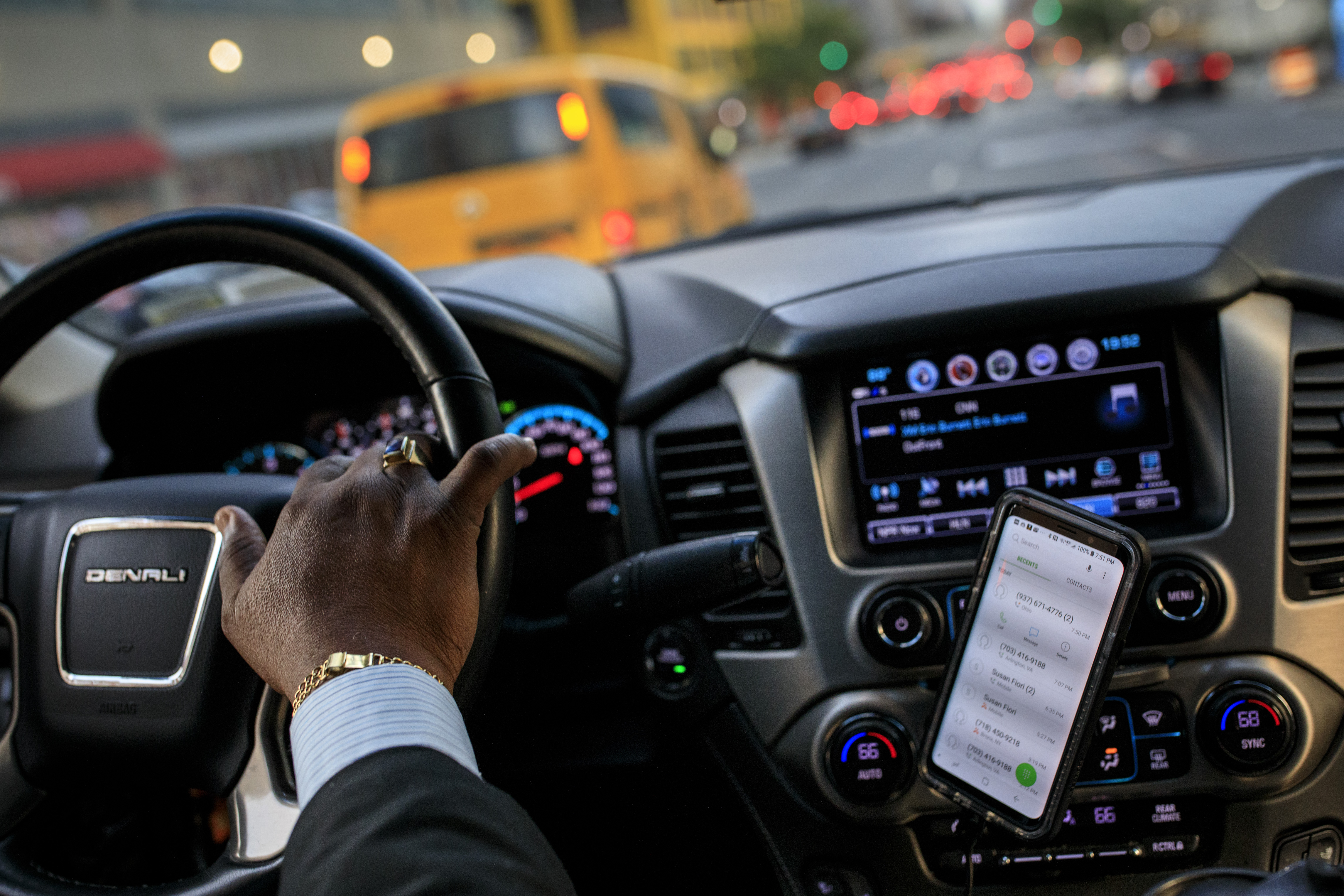This Case Will Decide If Uber’s Surge Pricing Is Illegal

Credit to Author: Edward Ongweso Jr| Date: Mon, 23 Sep 2019 21:45:59 +0000
Next month, a company-appointed arbitrator will hear arguments on whether surge pricing is in violation of antitrust law. The results of the trial could make or break Uber’s already-unsustainable business model.
Surge pricing is a core feature of Uber that ostensibly lets an algorithm optimize peak demand periods. Uber claims surge pricing increases driver supply, but researchers say the feature serves to redistribute existing supply while pricing out some customers and prolonging driver shifts. As with virtually all of the algorithms that tightly manage Uber’s drivers, surge pricing is a black box. While Uber has changed the feature multiple times over the years, it still seems to negatively impact drivers and passengers. If surge pricing is found to be illegal, Uber could lose its ability to control the pricing of rides, the distribution of driver supply, and the consumption patterns of riders.
In 2015, Spencer Meyer, a Connecticut Uber rider, sued Uber co-founder and then-CEO Travis Kalanick, alleging that Uber was engaging in price-fixing. When a group of businesses agree to charge the same price for a good or service, this is price-fixing. In Uber’s case, its drivers are considered contractors who operate as independent businesses, and Uber ultimately determines the price that those contractors charge for their services, Meyer argues.
“This has always been a simple case,” said Andy Schmidt, the lawyer who filed the original federal district court action back in late 2015. “Uber wants to have it both ways.” By “both ways” Schmidt is referring to Uber’s argument that it simply has a platform that matches drivers to their clients (riders) while setting the prices for rides.
“Uber says its drivers are independent actors. But Uber drivers do not compete against each other on price. When they surge prices, they do so in unison, something that could not happen without Uber’s coordination,” Schmidt told Motherboard. “Is that price-fixing? We think the answer is yes.
The case was initially assigned to U.S. District Judge Jed Rakoff, who dismissed Kalanick's denial of price-fixing and moved the case forward. In March 2016, he affirmed the plausibility of Meyer’s allegation that Uber was engaged in price-fixing by setting a price that drivers agreed to charge and wrote, “These agreements are organized and facilitated by defendant Kalanick, who as at least an occasional Uber driver, is also a member of the horizontal conspiracy.”
All that, however, was stopped in its tracks thanks to a forced arbitration clause hidden in Uber’s Terms of Services, which forced users to waive their right to sue and instead settle disputes privately. After shooting down Uber’s motion to compel Meyer to arbitrate the case, an appeal to the Second Circuit forced Judge Rakoff, ironically enough, to force arbitration—even though “it is based on nothing but factual and legal fictions," he wrote.
As reported by Jalopnik, a motion by Uber to dismiss Meyer's claims for "declaratory and injunctive relief" was pending in March 2018. This was Uber’s attempt to kill the potential for an arbitrator's ruling to affect anyone other than Stephen Meyer. In 2019, an arbitrator moved to deny that motion and opened the door for this case to be taken back to the district court if the arbitrator finds surge pricing to be illegal, and for Uber to potentially lose control of its ability to set prices in the United States.
“If it doesn’t have control of its own prices, then drivers really get to set the prices and it opens drivers up to other workplace structures,” said Veena Dubal, a law professor at UC Hastings who researches the gig economy. “Drivers can use the price to get control over other things too, saying ‘we’ll agree to this price if you do X, Y, and Z. If you share proceeds from data with us or if we co-own the data.’ [Uber] lose[s] control over everything if they lose control over the price.”
In a statement to Motherboard, an Uber spokesperson said: “We are confident the law is on our side and look forward to the hearing in this case so that we can put plaintiff’s unsupported theory to rest once and for all."
That this lawsuit could expose a number of contradictions in Uber’s legal arguments is a possibility we are only just beginning to explore—contradictions which would further complicate Uber’s path forward as it enters multiple fights across multiple fronts.
California’s AB 5 not only threatens to reclassify Uber’s drivers from independent contractors to employees in the state but to inspire other states and cities to follow suit. If Uber’s drivers are independent contractors, not employees, then Uber exposes itself even further to a legal argument that the company is engaged in price-fixing, and that surge pricing is in violation of antitrust laws. If its drivers are reclassified from contractors to employees, it could add over $500 million in additional labor costs to Uber’s already negative cash flow.
In Europe, it has already been ruled that Uber is not a technology platform, but a transportation service. Now, UK drivers are using the European Union’s General Data Protection Regulation to shed light on Uber’s algorithms, a key part of how the company manipulates driver and rider behavior. If drivers are finally able to obtain complete datasets that include “time drivers spent logged on to their company platform, trip ratings, and individual GPS data,” then we would better understand whether Uber is fixing prices or is managing its drivers in a way that classifies them as employees.
But there may be a bright side to all this for Uber, Dubal told Motherboard. If surge pricing is found to be illegal, then there would be no question that Uber is a marketplace simply matching riders to drivers that set their own prices.
“Then they’d really be Craigslist, which is what they say they are.”
This article originally appeared on VICE US.